Special Feature: Sudanese Artists – the changing landscape
On March 22nd, Moawia, also known as Nile, was voted out from the semi-finals of the second season of “The Voice” in its Arabic version on MBC.
The season was a hit with a lot of Sudanese inside and outside Sudan; a local singer even made this traditional beat with lyrics supporting Nile the “Black Honey”. Fans watched the long performances, voted for Nile repeatedly, and managed to successfully take him from one level to the next.
It (probably) helped that his coach, Egyptian singer Sherine Abdel Wahab, was infatuated – subtly, of course.
Nile is a star by all means; he chooses songs that suit his voice, his style appeases a wide audience and let’s be frank; he’s a looker.
My Twitter feed was awash with excitement whenever he performed and anxiety regarding the voting capacity of Sudanese up against an Egyptian contestant with 90 million possible supporters.
Nile was more than a show contestant though; the last time a Sudanese made it to an advanced stage in a popular Arab performance competition was in 2007, when Khaled Hassan participated in the Super Star show.
Nile was well-connected to his fans and supporters on multiple platforms; tweeting, posting on Facebook and uploading backstage pictures to his Instagram account. This was immensely satisfying because, nowadays, many of us have become accustomed to following news of our favorite entertainment or sports celebrity through social media. Imagine Insaf Madani live tweeting from the latest Henna party; I know some who’d happily follow her.
Support was flowing after his termination from the show; tweets and Facebook posts revealed a lot of enthusiasm that extends beyond his artistic talents – people found solace in a Sudanese representing us to the world and especially the Arab world.
Ahmed Dafalla summed up the general feeling about Nile’s participation and performance on The Voice; he posted this comment on Nile’s Facebook page on January 26th:
“I’ve been listening to your music for years, {t}hank you for {a}uditioning for the Voice, {t}his is not about a show, it is a redefinition of Sudanese identity/stereotype in mainstream media in the Middle East, yeah, for me it is a big deal. And you present that with an image that is Sudanese but current and relatable to Arabian and global Audiences. Make sure you play it smart with performances, hit classical as well as your original music, some Arabian twists and maybe some Sudanese folk songs at some point, keep the crowd on their toes. We all support you, I am sure millions will vote for you when the voting starts, and {I} will be first in line. We’ve got your back. Represent.”
The Sudanese identity has long been an uncomfortable topic; the younger generations continue to struggle with the Afro-Arab versus Arab versus African origins and the geo-politics of it all. A few weeks ago, Sudanese artist Al Sarah performed a wonderful rendition of “Garib Lai” (Come Closer to me) on Bassem Youssef’s* segment on the Nile Project; the issue of identity was brought forth on social media commentary. Her performance was about blending Arab and African beats and lyrics; to me it might be the solution to some of those who want to identify with both composites in the audio-visual art scene.
Al Sarah attempts to combine beats from parts of Sudan that are underrepresented in the mainstream Sudanese music. In that, she brings us closer to an Afro-Arab identity. In the same way, Nile brought us closer to a worldly audience when he competed with English language songs in an Arab show targeting the Arabic speaking world.
On this issue, we have to question why Sudanese music hasn’t made it to the international arena, or even continental (except for Mohamed Wardi’s fame in the horn of Africa). Our musical scale and tunes are different within our borders, music from the East, West, North and South of modern-day Sudan do not match; nonetheless mainstream music is a reproduction of Haqeeba± music from the early to mid 20th century.
In a tweet, Amr Abbas noted that “The Sudanese song, like others, requires development especially with Sudan’s tunes to take it to the international arena. Nile reached the highest sealing for singing in English in an Arab/Arabic contest” (translated from here).
How is this development sought if according to Ahmed Salah** the following challenges persist in the face of young talents in Sudan: lack of proper equipment and training, lack of recognition by the musicians union and traditional music circles and lack of investment funding in the music production industry – especially for the younger more independent voices. Furthermore, the Sudanese society continues to demand mainstream music (reproduced eras old lyrics) in main events; corporate and personal. A tiny segment of society yearns for independent youngsters with their radical lyrics and intermingled styles realistically reflecting the current era. Due to the difficulty in securing performances in cultural centers and restaurants, the options remain limited. Salah remains optimistic, noting that small successes have been achieved, thanks to the support of the local and diaspora scene and the low-cost channels of distribution (social media).
I probably watch an hour of TV per month, be it Sudanese or otherwise; but before Hussein Khojali became a hot topic for TV commentary, it was all about songs. Shows had seemingly meaningful discussions between long winding live music performances. That was Sudanese TV for me; it remains so as I walk by the screen – shaking my head as my Haboba sways hers in nostalgic absorption. This remains a country where events are centered on The Singer (the who’s who of the moment), where TV and radio shows still discuss poets who’ve passed away and composed eons ago – we celebrate our music.
Yet we don’t market it. We don’t produce it in a worldly manner; mind you not even locally – how many artists still record in Egypt? It’s 2014 and people are downloading songs by the dozen, it’s the easiest era to make excellent competitive music and distribute it internationally with a click of a button. I have a friend whose hobby is to make club beats that compete with Calvin Harris’s any day. He refuses to go mainstream and he’s been recording on his desktop computer since he was 14. I know of at least two independent recording studios in Khartoum, but their music is non-existent outside the little clique of bougie Khartoumites and diaspora yuppies.
Nile’s page currently boasts more than 187,000 likes compared to some of the traditional singers’ pages that rank in the lower thousands. I’ve been to three Nile performances; one in Khartoum and two in Cairo. He always sang in English and still packs the house well. Could it be that the youth are looking for more relatable songs; be it from their favorite international stars or tailor-made to suit the latest production trends? The underground scene is slowly finding ways to disseminate and reach larger audiences; their lyrics are realistic and current (1 ,2) and their niche market and minute resource pool is making them incredibly creative.
*Bassem Youssef is an Egyptian popular talk show host who spins sociopolitical current affairs into satire.
**Ahmed Salah is a poet, rapper and vocals coach for young talented Sudanese in Khartoum.
± Haqeeba music is a widely respected and popular genre in Sudanese culture.
On the origin of the word:
The word Hageeba can be translated to “suitcase” or “mini era”. The first translation refers to the most common/trustworthy version of the naming of the genre, it is also the explanation of Mr. Ali Mustafa- a Haqeeba historian. The definition states that the old vinyl of songs were stored in a suitcase that belongs to Mr. Mohammad Ahmad Salih who worked for Radio Omdurman and he played them on his show before it was named Haqeebat Alfann (Suitcase of Art). The other story states that it was called Haqeeba because it documents a certain era.
On the birth of Haqeeba:
There are two stories, but the most cited one suggested that it started at a wedding party in
Samasra neighborhood in Omdurman in the early 20’s when the Tanabra (an acoustic assembly similar to Choirs performing a fold genre similar to the one in Nancy Ajaj’s Andrea) revolted against the lead singer, the Tanabra who revolted were Sarour (The godfather of Haqeeba) along with Alameen Burhan. Haqeeba mainly refers to poetry, and the last poems written by Haqeeba poets were in the mid 50’s. Haqeeba is still performed until this day in its original style “drums” and with orchestras/musical bands and has a wide fan base.
AlSillim AlMuseqi (musical scale) is a pattern on which musical styles are composed to. The Sudanese scale is a pentatonic scale and is used in southern Egypt and most of east Africa and Sahara. Surprisingly, it’s also used in eastern Europe, China and Japan. Our variation of the pentatonic scale is very similar to the Ethiopian and Eritrean one, leaving little similarity to Arab music. The Sudanese scale could be categorized as purely African, but in contrast poetry is in Arabic and has many Fus’ha (classic) references.
Some would say that Hageeba is the most authentic Sudanese art form; it’s purely Sudanese and wasn’t affected by foreign art movements or influences. Haqeeba can be used to guide the ongoing identity crisis, because poets and artists were from different backgrounds and ethnicities, but unfortunately many can argue that the genre strictly represents Omdurman and the central region.
Special thanks to Mohammad Hussein for the valuable information about Haqeeba music.

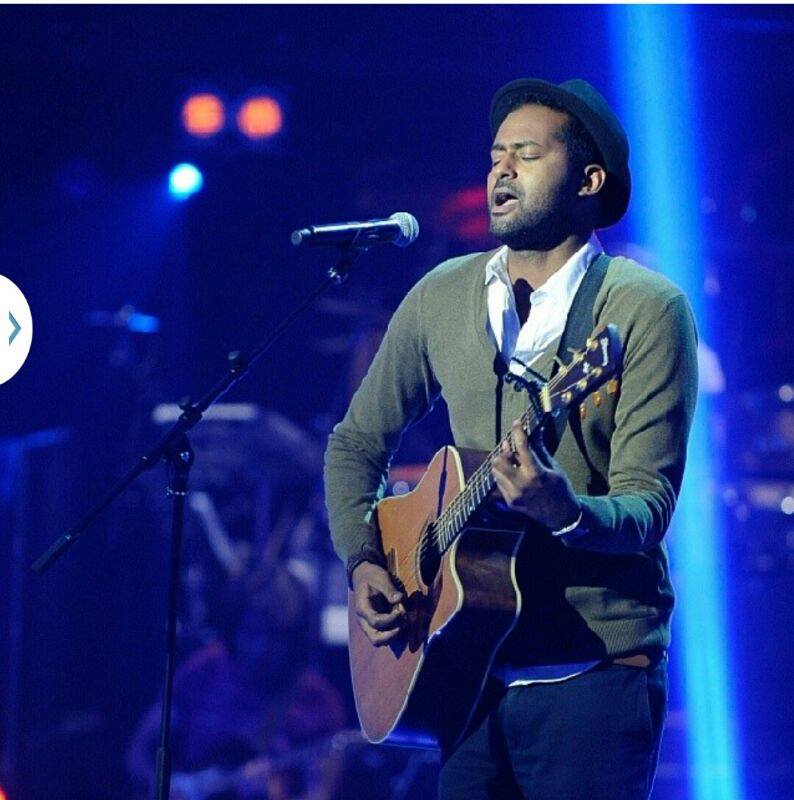
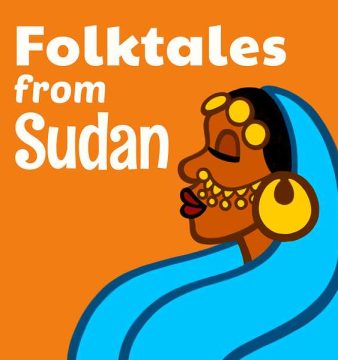
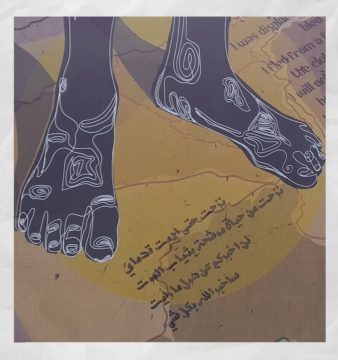
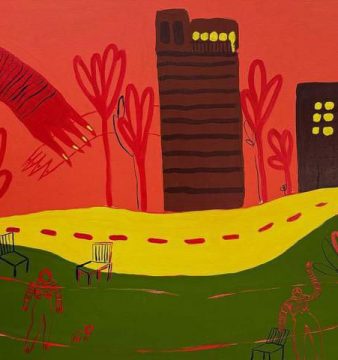
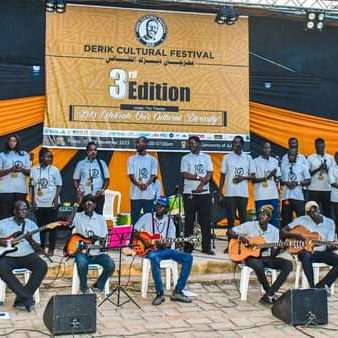
What was the reason he has been removed from the competition?!
If he has the chance to be in
The original American -Voice-
With Shakira and her supportive team
Nothing can take him down his levels and Nile is able to compete and let the world hear his songs!
Hi Safa, maybe he SHOULD go to the American one! He’s talented and we might be in for a surprise, but for now he was voted out while his competitor Waham won.